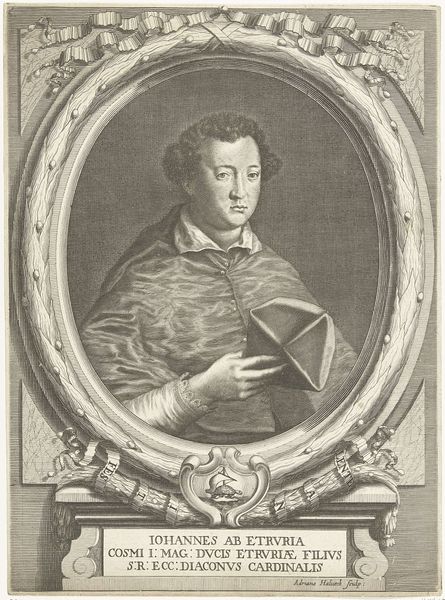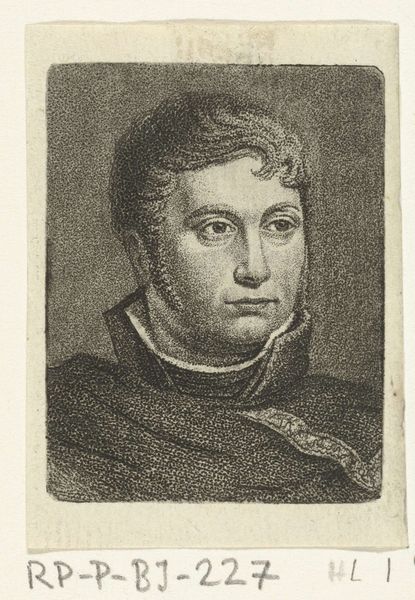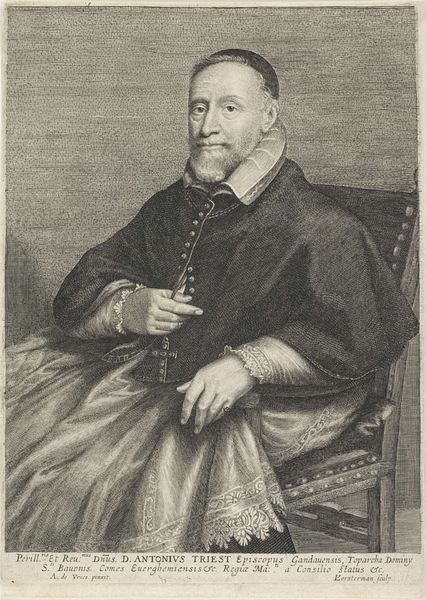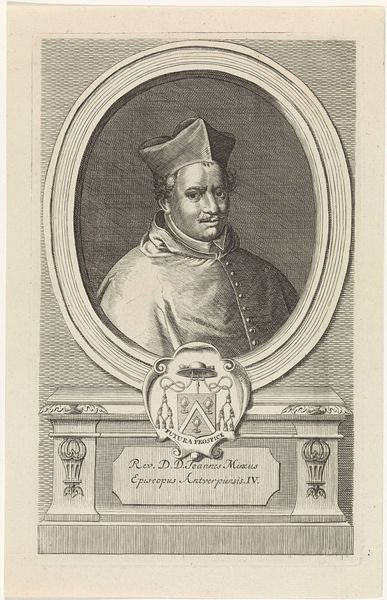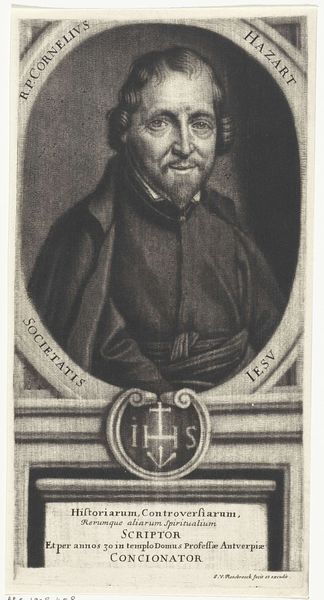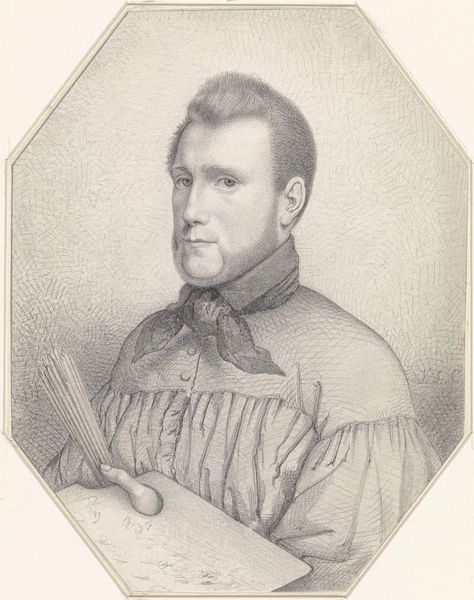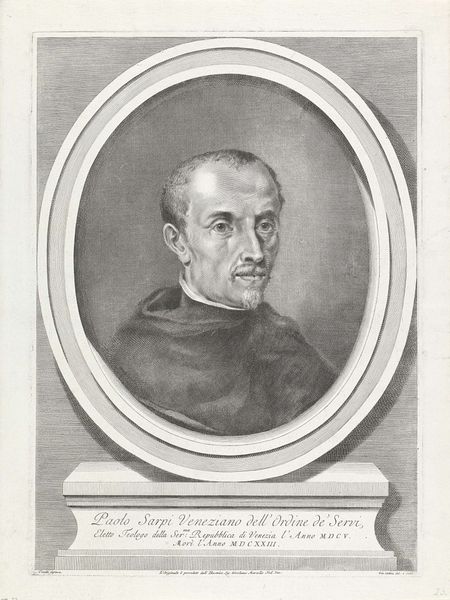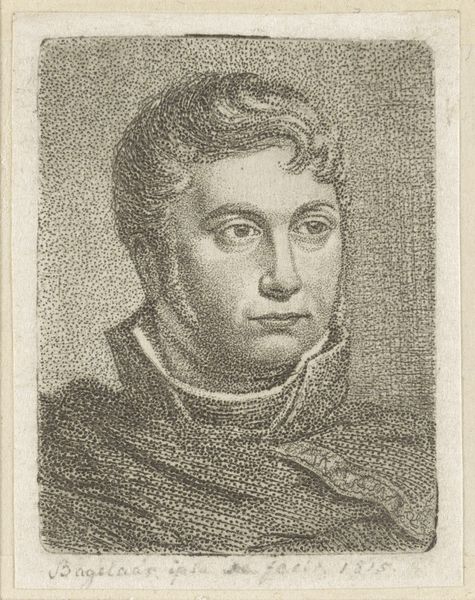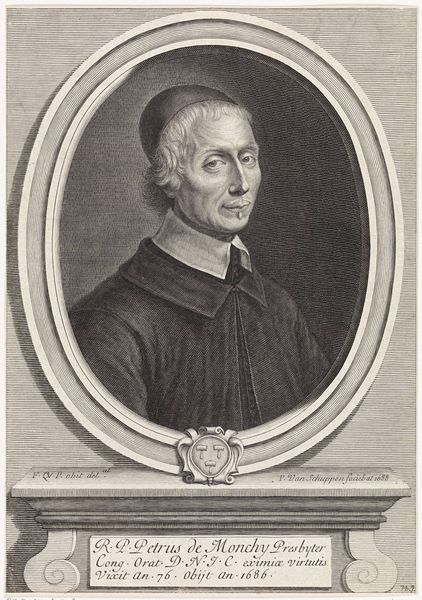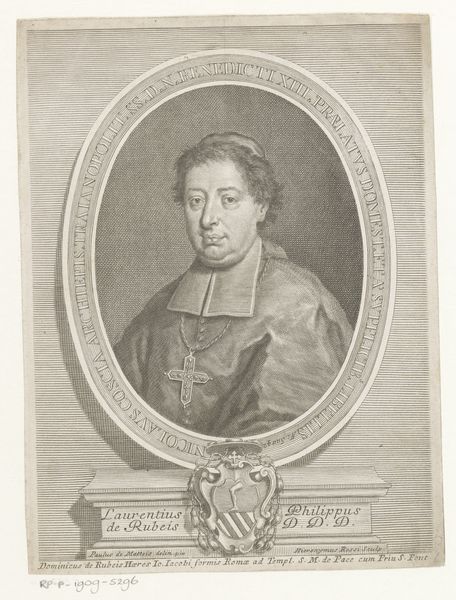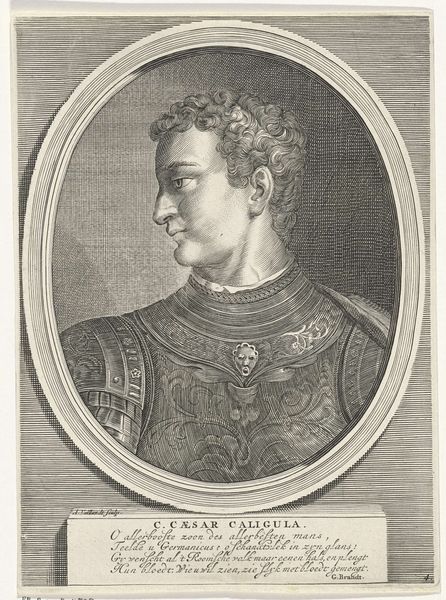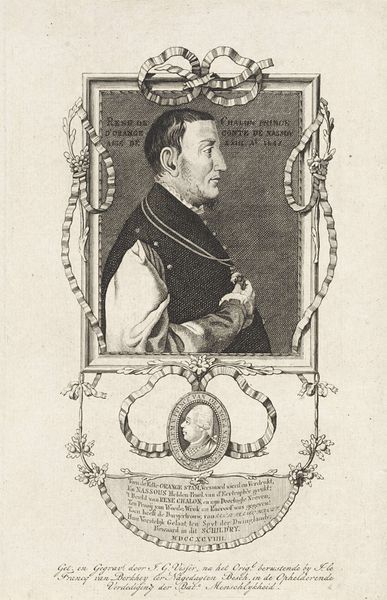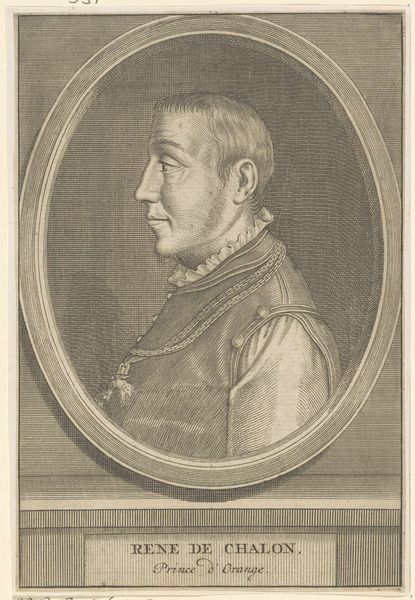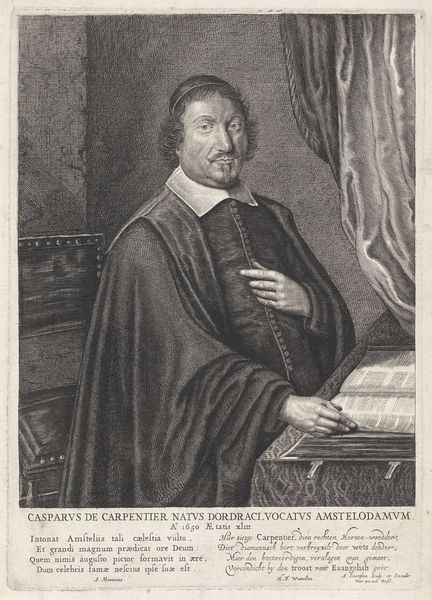
engraving
#
portrait
#
baroque
#
old engraving style
#
history-painting
#
engraving
Dimensions: height 237 mm, width 182 mm
Copyright: Rijks Museum: Open Domain
This print, portraying Pietro Aretino, was made by Pieter de Jode II in the 17th century. It's an engraving, meaning the image was incised into a metal plate, likely copper, using a tool called a burin. The plate was then inked, and the image transferred to paper under high pressure. Look closely, and you’ll notice the incredible detail achieved through this process. De Jode masterfully employed a range of fine lines and cross-hatching to create tone and texture, giving the portrait a remarkable sense of depth. The lines are so fine, they are almost invisible to the naked eye. Engraving was a highly skilled craft, demanding years of training to master. It was also a labor-intensive process, requiring patience and precision. This print, therefore, represents not only the image of Aretino, but also the immense amount of work involved in its production. By appreciating the material and the making, we can challenge traditional distinctions between fine art and craft, recognizing the artistry inherent in skilled handwork.
Comments
No comments
Be the first to comment and join the conversation on the ultimate creative platform.
